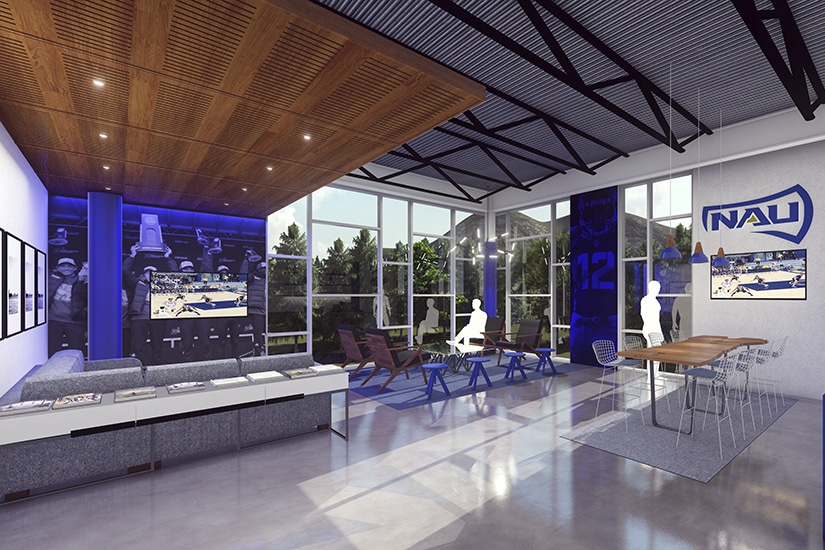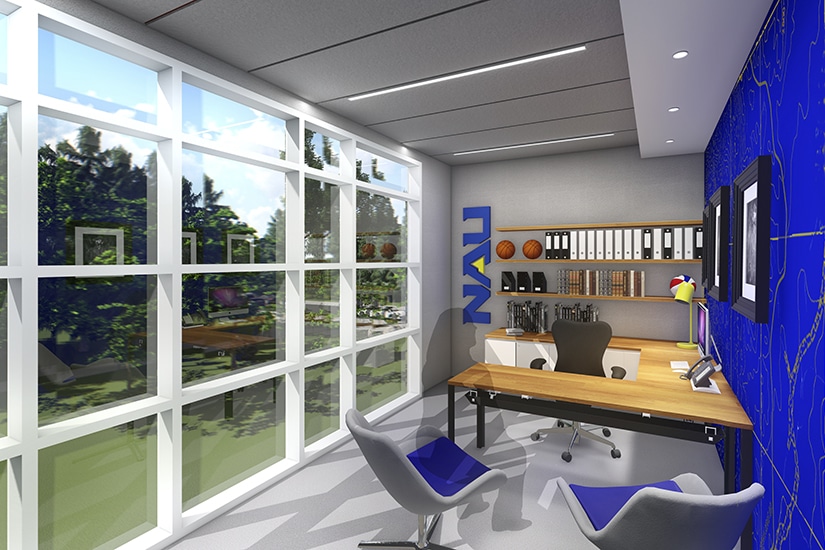|
Getting your Trinity Audio player ready...
|
When Stephen Vedral took over responsibility for maintenance and custodial functions as Northern Arizona University (NAU)’s associate vice president of facility services, he faced formidable challenges. The level of absenteeism was problematic. There was a shortage of trade shops. Morale was low. There were gaps in long-term maintenance and planning. He realized that operations had opportunities for improvement.
While better use of scheduling and planning tools along with revamping organizational procedures would help, the problems seemed to stem from weak leadership, lack of clear processes, and a need for cultural change. Remedying these problems was a tall order for Vedral and his team. Joining Northern Arizona in 2018, Vedral had experience in the Arizona state university system with the flagship Arizona State University in Tempe, but he was an outsider in Flagstaff.
He knew significant changes were necessary, but if he approached this task in a heavy-handed and excessively top-down manner, it could backfire. Vedral had to alter the organization quickly, but with a deft touch.

Dr. Daniel Okoli, the school’s VP of capital planning and campus operations had already begun to open lines of communication, a measure that Vedral continued once he joined the team. The new associate VP asked open-ended questions during early meetings with supervisors of operational groups, trying to get his charges to think about the big picture. For example, “What does success look like?” and “What does quality service mean?” Such basic questions spurred reactions from all participants and began to open minds to change. “You get better results when everybody participates,” Vedral says. This set the stage for organizational buy-in for new approaches.
Vedral also framed the challenges. For instance, while a reasonable argument might be made for more money for maintenance and cleaning, the prospects for bigger budgets were dim at best. The reality was that the department had to find ways to improve the quality of its work within tight budgets. “We need to do things more efficiently, and that’s not because you’re not working hard,” he told staff.
One of the leadership team’s first initiatives was to continue work started by Dr. Okoli on budgeting, estimating, and productivity. This cohort had little training on how to stick to a budget. Vedral’s team led weekly coaching sessions on this and other topics. For the custodial group, these sessions included how to address a rampant absentee problem. Workers would go on vacation at the last minute. Some would just fail to show up for work without reason. Those conditions had to change.
Vedral emphasized the need for accountability, which ultimately brought deeper issues to the forefront, such as the attendance policy. Repeat offenders of unexcused absences were ultimately dismissed, Vedral says, while the good performers welcomed the changes as they had been forced to work harder to make up for shirkers.

“We continued collecting data,” Vedral adds. “That was something we did not do very well before.” Managers now tracked absenteeism rates and kept a closer eye on spending. These improvements bore fruit quickly. Within nine months, every shop was in the black, absenteeism was addressed, and worker disputes were ameliorated as teams spent time clarifying responsibilities and expectations.
The performance improvements did not end there—Vedral and his team identified ways to ensure all employees were productive by eliminating unsupervised night shifts and establishing differential day shifts to improve coverage and organization.
The general maintenance mechanics now receive cross training to take on some of the lower skilled tasks of HVAC and plumbing, such as changing filters and fixing minor leaks. This produces more workers that can function as first responders and perform triage during emergencies. Providing workers with opportunities to learn skills is good for the university and helps with morale, Vedral notes, adding that “it’s not about grinding people into the ground.”
Upholding performance standards is critical, but making employees feel valued by broadening their skills and offering rewards for good performance is just as important. All of these efforts have resulted in improved productivity and higher quality service, the associate VP notes, and the immense support he has received from the president and senior leadership team have made it all possible.

Aside from managing team refinements, Vedral’s responsibilities also extend to space allocation. Just like maintenance and custodial services have to operate more efficiently, so too do academic and support services in how they use space. A recent space analysis by a consulting firm provided some good news: “We have adequate space that needs to be looked at differently and used more effectively,” he says.
Better scheduling of classes and reconfigurations of space will have significant impact. A renovation of planning, design, and construction services offices has already demonstrated how to use space more efficiently. This project removed large offices and replaced them with an open-office concept.
The original space supported 10 people and after the renovation, it can support nearly double that, and will include amenities that did not exist before such as six new meetings space, one-on-one rooms, small collaborative spaces for five-to-six people, a larger 12-person conference room, and a much needed design center.
Under Vedral’s continued leadership, NAU’s facilities team will no doubt continue to reach for mountainous new heights.


